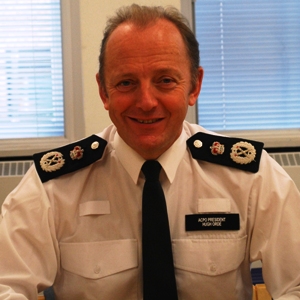Index relies entirely on the support of donors and readers to do its work.
Help us keep amplifying censored voices today.
 Index on Censorship’s Kirsty Hughes talks to Sir Hugh Orde, one of the UK’s most senior police officers, about protest, public order and politics
Index on Censorship’s Kirsty Hughes talks to Sir Hugh Orde, one of the UK’s most senior police officers, about protest, public order and politics
(more…)
In my months covering the Leveson Inquiry, a clear and startling picture was painted of closed, secretive police forces, tense in their relationship with reporters on local and national papers and fiercely protective over the flow of information.
Justin Penrose of the Sunday Mirror described a “state of paralysis” in police-press relations. The Times’ crime editor Sean O’Neill said that “in the current climate, if you arranged to meet an officer you’d be looking over your shoulder the whole time.” The Guardian’s Sandra Laville cited an “over-reaction” by the Metropolitan police in response to the Inquiry, adding that “open lines of communication, which have been there for many years, are being closed down.”
So it is worrying that some of the more terrifying passages of the Leveson report that could perpetuate this closed culture, chill investigative journalism and also have grave implications for whistleblowers have gone almost unnoticed.
First, Leveson recommends increasing sentencing powers for breaches of section 55 of the Data Protection Act and also suggests that paragraph 2 (b) of schedule 1 the Police and Criminal Evidence Act 1984 (PACE) be repealed. The latter means that police should only request journalistic material as a last resort; repealing it would make it far easier for them to do so. As Index wrote in a policy note published today, the work of journalists who cover crime or terror stories could be compromised if this proposal is followed through, and sources that require protection might feel less confident in dealing with the press as a result.
O’Neill told me he finds the proposed change to PACE “terrifying”, calling it a “landgrab of massive new powers” that could force journalists to disclose their sources.
Add to this Leveson’s suggestion for an internal whistleblowing hotline, which would, in his view, get rid of the need for confidential briefings to journalists on internal police issues. The judge also recommends that “it should be mandatory for ACPO [Association of Chief Police Officers] rank officers to record all of their contact with the media”, and proposes an end to off-the-record briefings.
“This is music to the ears of people in the Met,” O’Neill said. “They think they should be the guardians of what transparency is.”
“Leveson has effectively just endorsed the approach the Met adopted post-phone hacking, when it went into complete lockdown,” he added.
Leveson might well strive for a more transparent environment — after all, it was the shady culture of collusion between editors, police officers and politicians that allowed reprehensible newsroom practices to fester and helped to severely dent public trust. This is rightly being investigated. But there is nothing wrong with an officer talking to a journalist: contact between them is just one of the ways reporters can scrutinise those in power, and the informal kind might provide more “texture” and “colour” that official sources might not give, as Laville told the Inquiry last March. Both parties are humans, and need to be able to discuss matters openly and without fear if information is to flow freely.
For their part, both David Cameron and Nick Clegg expressed strong concern over the data protection recommendations when they responded to the report last month. Yet amid the recent arrest of an officer in connection with a leak that spurred the “plebgate” row and resignation of Tory chief whip Andrew Mitchell, there is greater concern over how police officers and journalists navigate the murky post-Leveson world, as Vikram Dodd alluded to this week.
The reality is that this unsavoury mix of uncertainty and landgrabs fits a wider pattern of a culture yearning for a firmer grip on information: from disciplining a police officer for tweeting to plans for secret courts in the Justice and Security Bill currently under consideration in the House of Lords, there seems to be an appetite for perpetuating secrecy.
It’s hard to know what’s more worrying: that Leveson — so adamant was he about protecting freedom of speech — suggested these alarming proposals, or that so few seem bothered by the prospect of information becoming such a shackled commodity.
Marta Cooper is an editorial researcher at Index. Follow her on Twitter: @martaruco
A tough but voluntary regulator is the best way to ensure a free press and a fair society, Index says in a new policy note (more…)
 Leveson’s “statutory underpinning” is no way to protect press freedom, says Kirsty Hughes
Leveson’s “statutory underpinning” is no way to protect press freedom, says Kirsty Hughes
(more…)